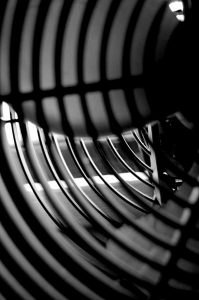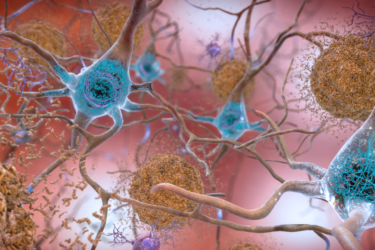
Summertime and the living is easy – sometimes.
While most of us look forward to the warmer weather and participating in outdoor activities, summer is not always kind to older adults. Moreover, despite what seems like an annual warning about the dangerous effects of hot temperatures and poor air quality on seniors, there are still too many reports of older people hospitalized or dying from heat-related causes. That’s why it’s still a good idea to remind everyone that summertime isn’t always so easy.
The CDC estimates that over 650 people die each year from heat-related illnesses. The majority of deaths are adults over age 65, especially those who live alone, those without access to air conditioning and those with underlying health problems, says the Maine Department of Environmental Health.You may remember that some 750 people — mostly seniors — died in Chicago during an extreme heat wave in 1995. Hospitalizations for heat-related illness also increase with age, especially for those 85 and older.
In extreme heat, the body must work extra hard to maintain a healthy temperature. Older adults are at higher risk for heat stroke, heat cramps, heat exhaustion and other serious health issues due to poorer circulation and less effective sweating that comes with aging. Medical conditions like heart disease and side effects from various medications can compound these risks, reports Efrem Castillo in the Times of San Diego.
Knowing the signs and effects of heat on an older adult may help save a life. On the milder end of the spectrum is heat syncope, causing sudden dizziness during hot weather activity. Adults taking beta blockers are at a higher risk of feeling faint or dizzy, according to the National Institute on Aging (NIA).
Next comes heat cramps, which usually cause brief, painful muscle spasms in the stomach, arms or legs. The cramps may hit during or shortly after exercise or while working in the heat and be accompanied by heavy sweating and mild nausea.
More serious is heat exhaustion, which can develop quickly in older adults. Those afflicted need to be cooled and hydrated as soon as possible. Signs include excessive sweating, dizziness, nausea, muscle cramps and weakness. Heat exhaustion can quickly turn into heat stroke, a life-threatening condition which requires immediate medical attention. Signs of heat stroke include hot, dry, red skin; lack of sweating; rapid pulse; high body temperature (103 F or higher); headache; rapid and shallow breathing; loss of alertness; confusion or loss of consciousness.
The NIA says older people living in homes or apartments without air conditioning or fans are at most risk. People who become dehydrated or those with chronic diseases or alcoholism also are at higher risk.
Special attention should be paid to any older adult with Alzheimer’s or other dementia. As this story in the Wilmington (Del.) Journal reported, “A person with cognitive impairment, whether from disease or injury, may not be able to communicate distress. In some cases, they may not even “feel” the heat or discomfort because of changes in the brain’s abilities to process sensory information or regulate their body’s responses to heat.”
Dehydration is always a concern for older people because they can lose their sense of thirst, according to the U.S. Office of Disease Prevention and Health Promotion. Dehydration in older adults is linked to confusion and falls; it can cause constipation, kidney stones, bladder infections, and oral health diseases. It’s important for caregivers to monitor older loved ones and offer water throughout the day, regardless of whether they say they’re thirsty. If symptoms don’t improve or worsen over 24 hours, experts advise seeking immediate medical care.
Stagnant air and poor air quality also can cause heat-related illnesses. The Office of Emergency Management (OEM), University of San Antonio, notes that those living in urban areas may be at greater risk during a prolonged heat wave than rural residents. That’s because asphalt and concrete store heat longer and gradually releases heat at night, resulting in higher night-time temperatures – the urban heat island effect.
Poor air quality can cause significant health problems for older adults, young children and people with respiratory or cardiovascular problems. The American Lung Association describes ozone as a “powerful respiratory irritant” at the levels found throughout the U.S., especially in the summer. Unhealthy levels of ozone – carbon dioxide in the atmosphere that combines with air pollution such as car exhaust – may cause throat irritation, coughing, chest pain, shortness of breath, increased susceptibility to respiratory infection, aggravate asthma and other respiratory ailments. This article about ozone alert days about ozone alert days from the Longview Journal in Texas offers tips to minimize the health impact.
While summer may be the favorite season for many, it can also be dangerous for certain populations. Writing yet another cautionary story may seem superfluous, but it may be a lifesaver.
Here are some questions to answer in your reporting:
- What programs are available to help seniors in your community beat the heat, such as this one in Henderson, Nevada?
- Are your community’s senior centers or other cool locations staying open longer and offering transportation to get there for those seniors who need relief?
- How is your city addressing the needs of homebound seniors who may not have air conditioning or be reluctant to use it due to electricity costs?
- This list of clinical studies provides additional background on heat-related illness and climate change on the elderly.






